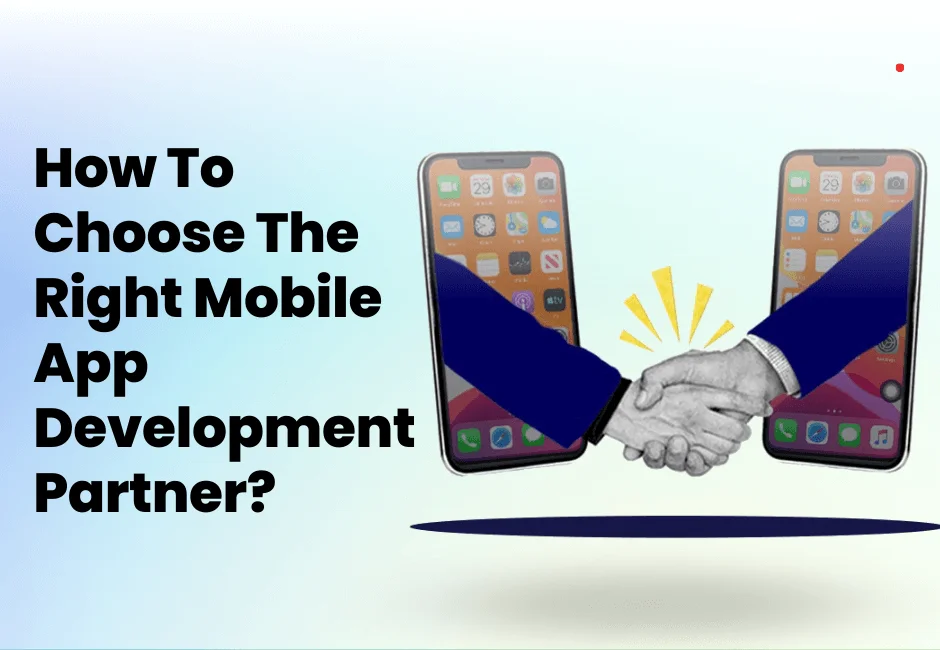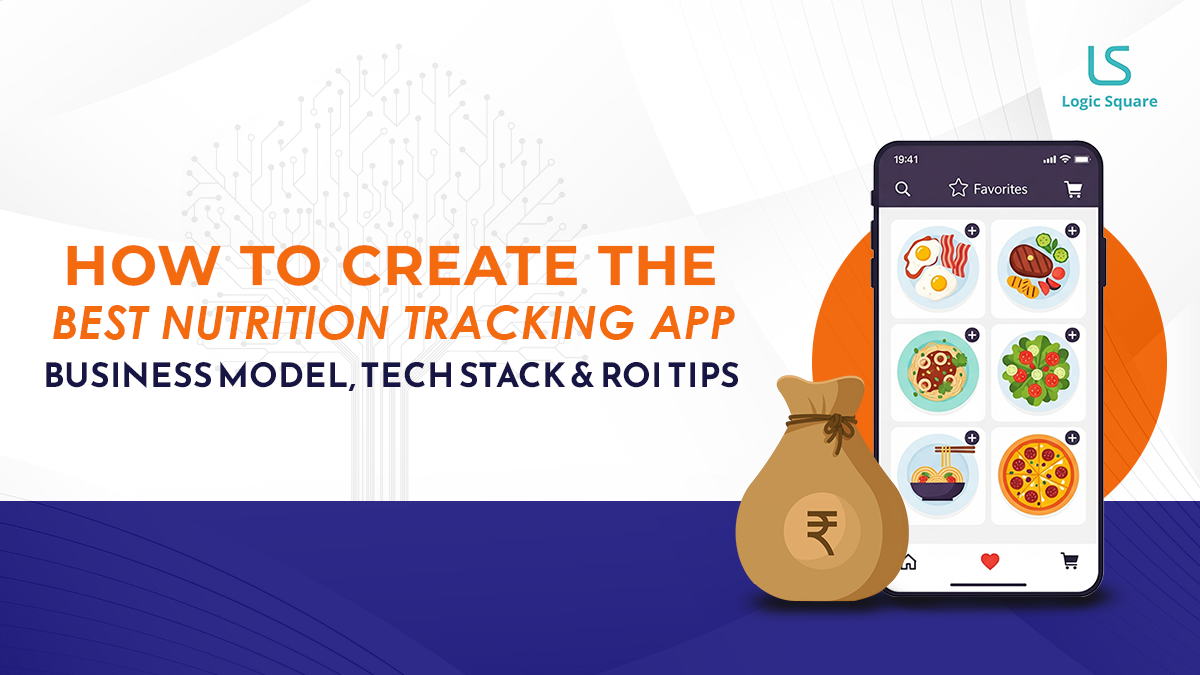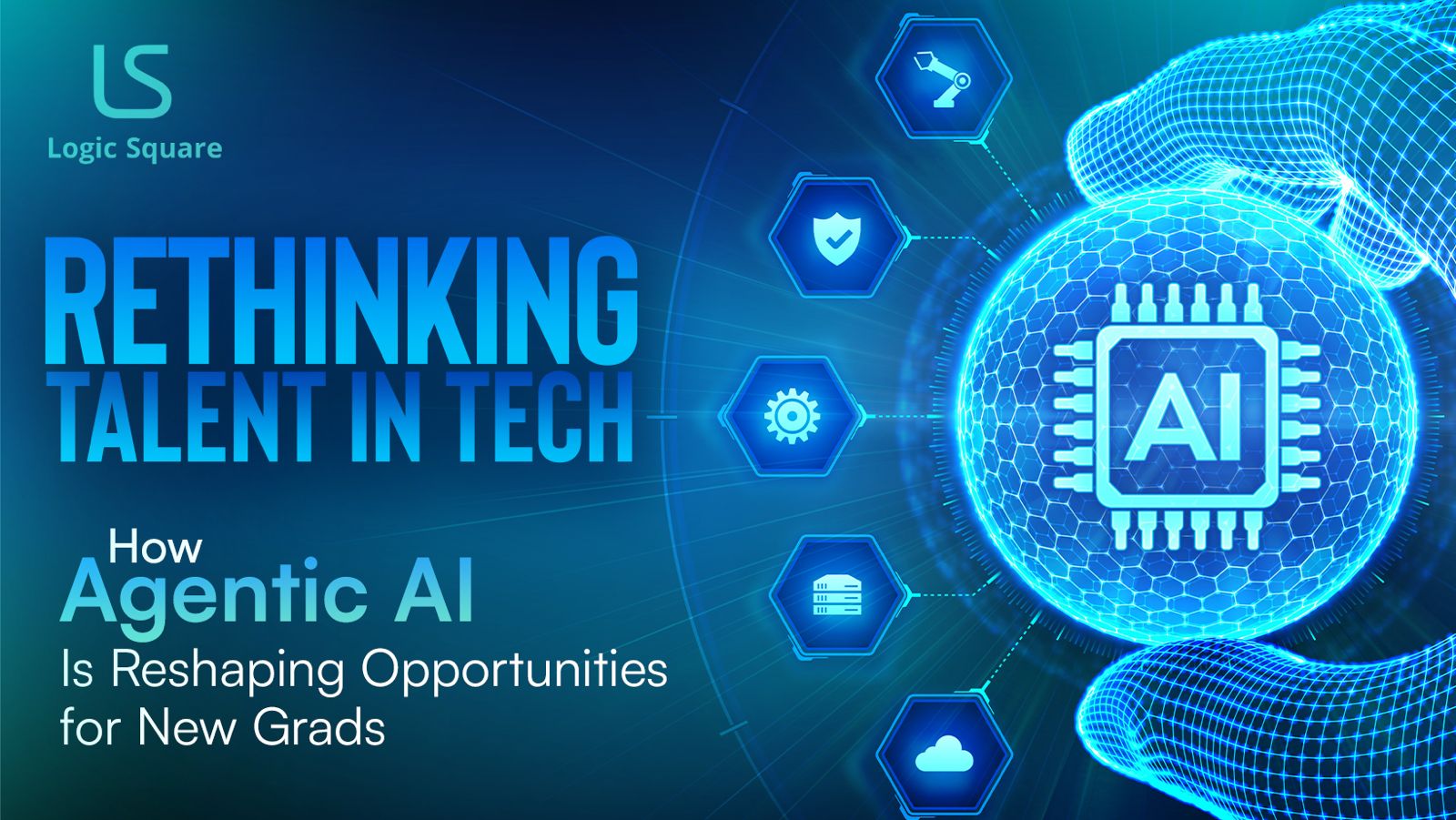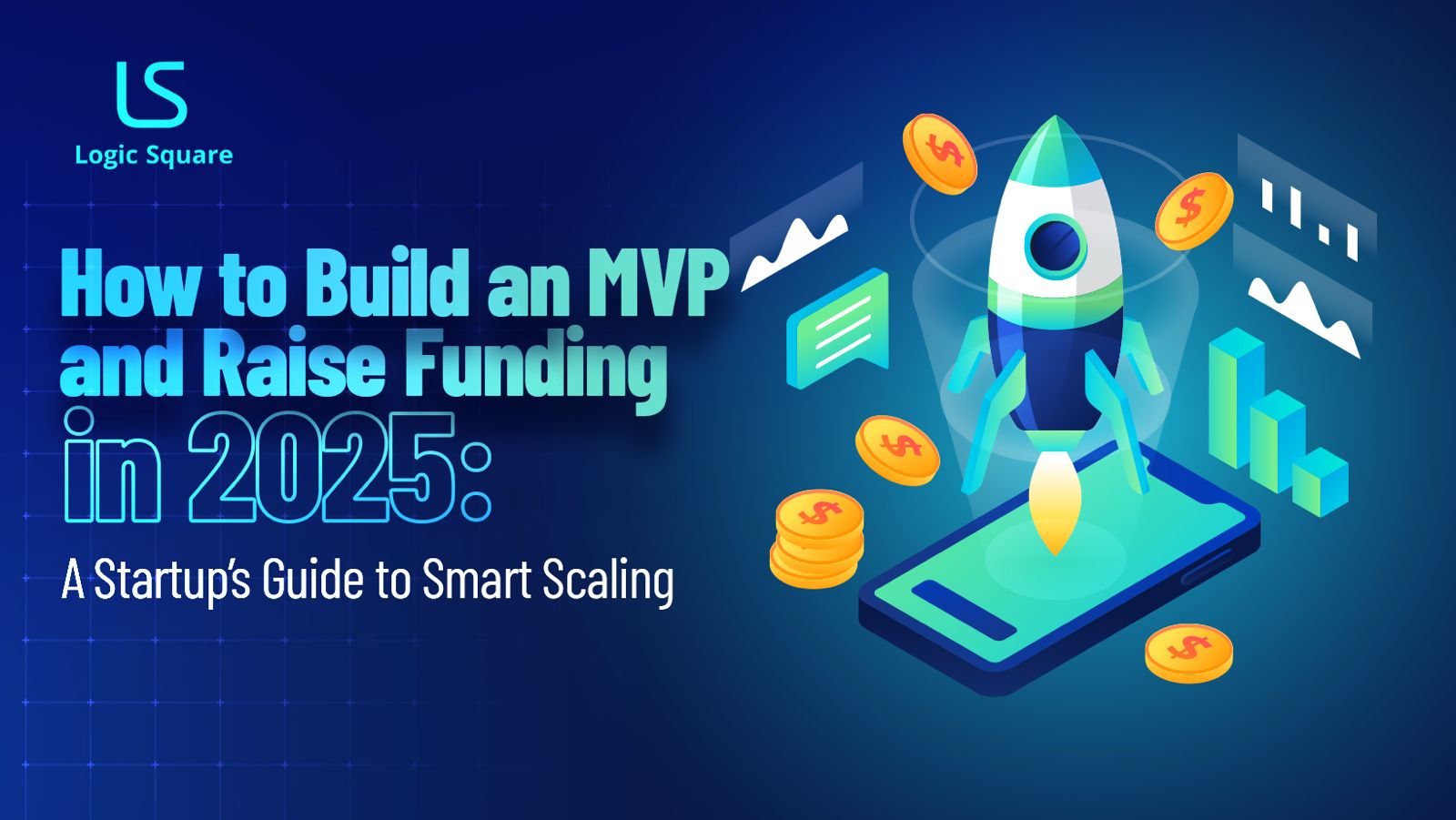Over the past two decades, smartphones have undergone an unprecedented technological revolution, helping to spread their adoption and becoming the primary device for internet browsing. According to a recent report from Statista, 57.6% of online traffic will be generated from mobile devices like smartphones and tablets in 2023. The widespread adoption of smartphones has completely changed the way people engage with the world around them, leading businesses to adjust their strategies accordingly. In the current scenario, mobile apps have become a necessity for every business if they want to survive in this competitive world.
To thrive in your business and remain competitive, you will need a highly responsive mobile application. This situation necessitates the requirement of an agency that can develop quality mobile applications. However, choosing the right partner can be challenging. This is why we have come up with tips for selecting a mobile app development partner in 2024.
Table of Contents
ToggleTop Tips to Select the Right Mobile App Development Partner
When you’re ready to bring your business idea to life, developing an app is the pioneering step. Choosing the right development partner can make all the difference. With numerous available options, finding the perfect fit can be confusing.
To streamline this entire selection process, we’ve outlined a few crucial factors you should consider when making a hiring decision:
1: Define A Clear Project Requirement
It is essential to have a clear understanding of your project requirements. You may have expertise in your domain, but when it comes to defining project requirements, you should consider having a meeting with your stakeholders. The agenda should define the app features, functionality, budget, timeline, and target audience. Having a well-defined project scope easily facilitates your needs to potential development partners.
2: Plan Your Budget
With your project requirements in hand, it’s time to shift focus to your finances. Sound financial planning is crucial for any major development endeavor, and app development is certainly no exception. Thus, establishing a realistic budget from the outset is imperative.
Your budget sets the framework for the entire development process, guiding decisions on the scope of the project, the level of expertise required, and the resources available for execution.
When searching for a development partner, it’s crucial to align their services with your budgetary constraints. A partner who understands your financial parameters can offer tailored solutions that optimize resources without compromising on quality. In contrast, non-alignment of your budget and the partner’s pricing structure can lead to misunderstandings, delays, or even project abandonment. By establishing a clear budget, you ensure a collaboration that values your investment and delivers the desired outcomes for your app development project.
3: Look For Potential App Development Partners
When searching for potential partners in app development, you need to employ a diverse range of strategies. This hunt includes online research, networking at industry events, finding referrals, exploring online platforms and industry associations, and issuing proposal requests (RFPs).
By applying these methods, you can identify a pool of potential partners and then shortlist them based on criteria such as expertise, reputation, reviews, and budget. With a promising shortlist in hand, you are now ready to evaluate which partner best aligns with your specific project needs and vision.
4: Evaluating Potential Partners
Before you make up your mind to partner with an agency, it’s essential to check the criteria for selecting the ideal mobile app development. By assessing the agency’s expertise, you can rely on them to reduce risks and increase the likelihood of a successful project outcome.
But how would you evaluate the app development agency?
When evaluating an app development agency, there are two distinct processes to consider
- The assessment you can conduct independently
- It would be best if you communicated with the agencies to gain a deeper understanding of their capabilities and approach.
Firstly, on your behalf, review their previous work. This includes reviewing the following aspects:
- Review Portfolio & Case Studies: The initial phase of evaluating an agency begins with a thorough examination of its portfolio and past projects. A robust portfolio serves as a testament to the company’s development expertise and its grasp of visual design aesthetics. By reviewing examples of the apps they’ve developed, you can gauge their keen attention to design, functionality, and user experience. Moreover, it reflects the agency’s proficiency in handling app complexities.
- Go Through Technical Expertise: Look for the necessary skills and experience required to make platform-specific applications( native applications) or hybrid applications. You can cross-check this aspect by downloading the specific application and getting a hands-on user experience. This process will illustrate how they address design language and integrate features, providing valuable insight into their approach.
Moreover, it’s crucial to evaluate a firm’s proficiency in emerging technologies to stay ahead in an evolving technology landscape. Inquire about their familiarity with blockchain, artificial intelligence, and machine learning, as these advancements could significantly enhance the usability and functionality of your app. A forward-thinking company will showcase its commitment to staying updated on technological advancements by adeptly leveraging the latest frameworks and tools available.
- Read Client Testimonials: Client testimonials are essential to gauge satisfaction levels and the agency’s reliability. They serve as a valuable tool to evaluate the agency’s technical proficiency and communication style, ensuring alignment with your project requirements and preferences. Also, client testimonials provide insights into the agency’s project management approach, timelines, and support services, contributing to a smooth development process from start to finish. By conducting thorough research and asking the right questions, you can confidently select an agency that meets your needs and sets your app up for success.
- Check Reviews In Forums: While client testimonials offer valuable insights into a company’s performance, they may need more than just them to provide a picture. It’s natural for agencies to paint themselves in the best light. Therefore, it’s essential to support client testimonials by researching the company’s reputation and reviews on platforms like Google and Glassdoor. These sources offer a broader perspective by incorporating feedback from a variety of stakeholders, including clients, industry experts, and community members. By examining reviews and input from multiple sources, you can gain a balanced understanding of the company’s strengths, weaknesses, and overall reputation. Apart from that, analyzing accolades, recognition, and event participation demonstrates a company’s standing relative to its competitors.
5: Discuss Project Management Approach
Here, you discuss how the agency will handle project milestones, updates, and feedback, as well as its approach to software development, risk management, and problem-solving. It would be best if you inquired about their process for collecting and addressing feedback from you and other stakeholders to ensure it’s incorporated efficiently. Look for a partner who uses an organized and transparent project management process.
This step involves understanding the development partner’s project management approach. It is essential to ensure that your project stays on track.
Choose An Appropriate Software Development Model
When choosing an app development agency, it’s vital to emphasize and understand the software development model they utilize. This model outlines how they will manage the development process. Here are several prevalent software development models:
A) Waterfall Model
In the waterfall model, the development process flows in a cascade manner through various stages, including planning, designing, implementation, testing, deployment, and maintenance. This model is a structured approach, as moving on to the next stage requires completing the previous stages.
B) Agile Methodology
It is a flexible development approach that stresses collaboration, adaptability, and feedback. In this approach, projects are divided into small iterations, known as sprints, which are meant to be completed in a specific time frame. This approach’s benefits include its ability to continuously improve and adapt to changing requirements throughout the development process.
C) Iterative Model
The iterative model involves multiple small development cycles. Each cycle involves planning, designing, developing, and testing a small portion of the overall software. This core functionality is then delivered to the customer for feedback, which refines the requirements and design for the next iteration.
D) Spiral Model
The spiral model combines the waterfall model and iterative development. It involves multiple cycles of planning, risk analysis, development, and evaluation, with each cycle representing a spiral loop. The model is particularly suitable for large, complex projects where risks need to be identified and managed early on.
E) DevOps Model
DevOps is an organizational approach that emphasizes collaboration between development and operations teams throughout the software development lifecycle. It aims to automate the process of software delivery and deployment, leading to faster releases. DevOps practices include continuous integration, continuous delivery, infrastructure as code, and monitoring and logging.
Each model has strengths and weaknesses, so it’s essential to choose one that aligns with your project requirements. Discussing these options with the agency will illuminate the project’s execution.
6: Keep Clear Communication on Project Management
We’ve already discussed the software development model. Now, it’s time to delve into various other aspects. First, discuss their approach to project planning and scheduling. Understand how they allocate resources, set milestones, and estimate project timelines.
Apart from that, ask about their communication channels and frequency to ensure transparency throughout the development process. Inquire about their process for handling unexpected challenges that may arise during development. Furthermore, discuss their quality assurance and testing methodologies to ensure the final product meets your standards. By asking more questions in these areas, you can gain a comprehensive understanding of how the agency operates and ensure a successful collaboration.
After discussing the agency’s approach to project management in detail, it’s time to discuss the engagement and pricing model. This phase involves exploring how the agency structures its services, determines costs, and manages the financial aspect of the project.
Inquire about their pricing models, such as fixed-price, time and materials, or dedicated team, and understand the implications of each for your project. Discuss any potential additional costs, such as maintenance fees or post-launch support. Take clarity on payment schedules, invoicing procedures, and any terms and conditions associated with the engagement. By having transparent discussions about pricing strategy, you will be able to decide if it fits into your budget constraints.
7: Discuss Engagement Model
Keeping transparent communication about the engagement model in mobile app development is essential for ensuring a successful partnership between the company and app development agencies. The engagement model outlines the terms, responsibilities, project scope, timelines, pricing structure, and more.
By maintaining transparency and clarity regarding the engagement model, clients can make informed decisions, understand their role in the development process, and manage expectations effectively. Here are a few models:
a) Fixed Price Model
This model agrees upon the project scope, timeline, and cost upfront. It is suitable for projects with well-defined requirements, and its best feature is that it provides clients with cost predictability.
b) Time and Material Model
In this model, clients are billed based on the actual time and resources spent on the project. It offers flexibility, allowing for changes to the scope and requirements throughout the project. It’s suitable for projects with evolving requirements or where the scope is still being determined.
c) Dedicated Team Model
The client is provided with a dedicated team of developers, designers, and other specialists to work exclusively on their project. This ensures faster development as a dedicated team works exclusively on your project. However, this can cost you slightly more than other models. This model provides clients with complete control over the team and allows for greater collaboration and transparency. It’s suitable for long-term projects or when the client requires ongoing support and maintenance.
d) Hybrid Model
The hybrid model combines elements of multiple engagement models to suit the specific needs of the project. For instance, it may involve a fixed price for the initial phase of development followed by a time and material approach for further maintenance.
Choosing the correct engagement model depends on several factors, such as project complexity, budget constraints, timeline, and client preferences. It’s essential to discuss these aspects with your agency carefully, evaluate these factors, and select the model that best aligns with the project goals and requirements.
8: Narrow Down Your Search
As of now, you’ve already communicated with a lot of agencies, and you must have a final list of agencies that you’ve sorted after going through all reviews, portfolios, development capabilities, and client testimonials. Also, you are equipped with relevant information like app concepts, software development models, engagement models, and more. It’s high time we use this relevant information to sync up with your requirements and budget.
Start discussing the engagement models (fixed price, hourly, etc.) to ensure cost transparency and align project ownership with your expectations. This comprehensive evaluation process will help you choose the right app development partner.
9: Complete The Legal Obligations
Once the agency is finalized, it’s time to safeguard the app development process through legal means. Here is how you can promote a successful partnership while keeping the contract safe.
- Make Contract & Agreements: Ensure that you have a detailed copy of the contract in place that describes the scope of work, timeline, payment terms and mode, intellectual property rights, confidentiality clauses, legal terms, and other important information. Get this contract signed by both parties and reviewed by a senior advocate.
- Intellectual Property Rights: Make sure the contract explicitly states who owns the intellectual property rights to the source code developed for your app and specifies whether you or the development agency will retain ownership of the app and its components, including any custom code, designs, or other intellectual property created during the development process.
- Compliance with Data Privacy: Check if the development agency complies with the guidelines of applicable data protection laws, such as the General Data Protection Regulation (GDPR) in Europe or the Digital Personal Data Protection Act( DPDP) in India. These agencies make guidelines to protect sensitive information collected or processed by the app.
- Keep Clarity On Jurisdiction: In case of any legal dispute, specify the jurisdiction and governing law that will apply to any disputes or legal proceedings arising from the contract. This ensures clarity and predictability in resolving potential conflicts and helps avoid jurisdictional issues.
Looking For App Development Services?
Now that you’ve learned the key steps to choosing the right mobile app development partner, it’s time to shape your business vision into reality. At Logic Square Technologies, we understand the intricacies of the app development process and the importance of finding the perfect fit. We are a team of app development experts who have crafted numerous mobile and web apps for satisfied clients, whose testimonials serve as a testament to our commitment to excellence.
Here’s what sets LogicSquare Technologies apart:
- Experienced and Versatile: Our team boasts extensive experience developing top-notch apps for native Android, iOS, and Windows platforms.
- Collaborative Approach: We believe in open communication and work closely with you throughout the entire development process and post-development phase for continuous support.
- Focus on Quality and Innovation: We prioritize crafting exceptional user experiences while leveraging cutting-edge technologies to make your app stand out.
Our experts will be happy to discuss your app idea, answer your questions, and provide you with a personalized quote. Let’s build your app together with LogicSquare Technologies.
Conclusion
Today, appointing app developers is essential for success in the competitive digital market space, particularly with a number of companies vying for attention. With the increasing number of mobile app development agencies, selecting the right mobile app development company in 2024 is definitely going to be a difficult task.
The criteria for selecting the ideal mobile app development company require thoughtful consideration of many factors. These factors include defining your needs, researching potential partners, evaluating development processes, considering finances, and prioritizing legal and security concerns. By making an informed decision, you can lay the foundation for your mobile app’s success.





